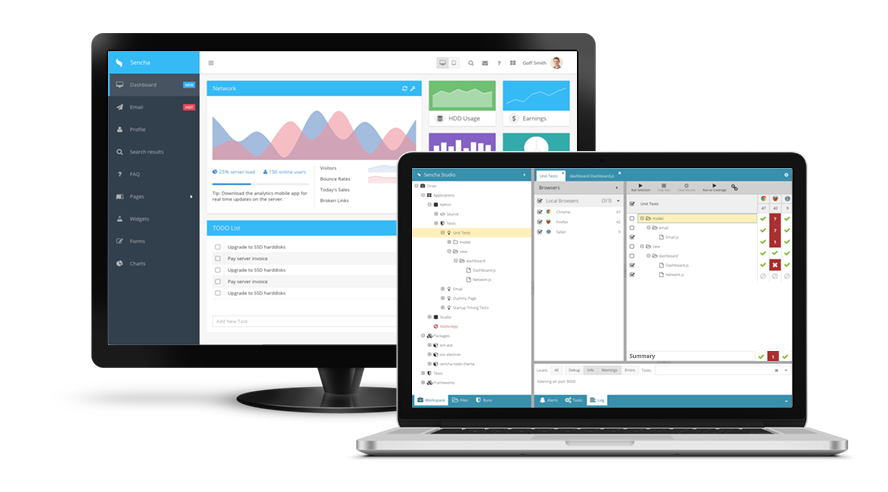
Sencha wants to help developers and test automation engineers easily and rapidly test Ext JS applications for multiple devices and cross-browser compatibility. The company has announced the general availability of Sencha Test, a new product designed with easy-to-use unit- and functional-testing features.
“This is a comprehensive solution that is available for the team to collaborate and work together to be able to accelerate their testing and improve the overall quality of their Ext JS applications,” said Subu Baskaran, senior product manager at Sencha.
(Related: Testing catches up to DevOps)
According to him, developers and testers are having a hard time stitching together and maintaining a testing system from open-source and commercial solutions, which don’t necessarily address Web-specific challenges. Sencha Test aims to simplify the process in a one-stop shop where developers and testers can write tests as they write code simultaneously.
“When customers are putting together solutions, they find it inefficient or very difficult to maintain in the long run because while it is very nice to put together open-source test frameworks for a test product, when you actually do it for hundreds of thousands of test cases, the maintenance becomes a bit of a headache and you end up maintaining the framework, rewriting code, and refactoring code based on changes to the external dependencies,” said Baskaran.
“At the end you are not able to write good tests themselves, so that is actually the end goal of our customers: They want to write good tests to be able to release quality applications.”
Sencha Test features the ability to write unit and functional tests for Ext JS apps; create tests using an event recorder; organize tests into scenarios for long-term scalability and maintainability; integrate with existing CI systems; analyze how much of the code is being tested; execute tests locally and across browser farms; review and report on test results; and compare multiple reports for better analysis.
“Organizations are under serious pressure to quickly develop, test and deliver sophisticated mission-critical Web and mobile applications to support and expand their business,” said Art Landro, CEO of Sencha. “At the same time, the demands placed on application development teams are increasing while capacity is not. To deliver a quality product effectively across multiple platforms, browser-based test automation is crucial. With Sencha Test, we’re extending the Sencha Platform to meet enterprise needs across all facets of the application life cycle. Customers using the early-access version of Sencha Test were able to deploy the product in less than five minutes, and more importantly, a third of the customers expect Sencha Test to make their application development cycles 75% more efficient.”






